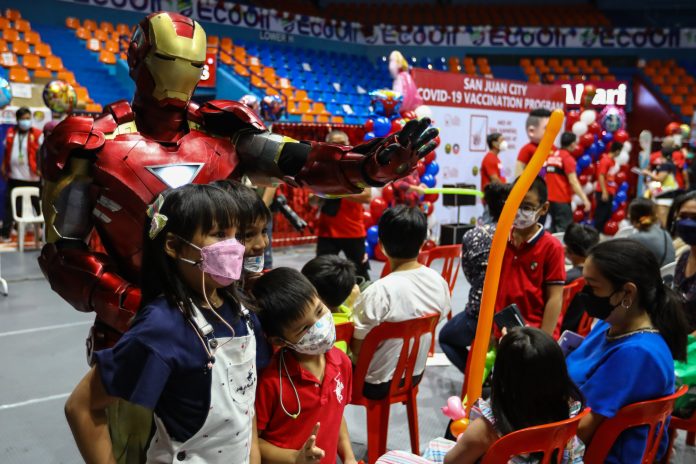At least a million Filipino children have not received a single dose of childhood vaccine against life threatening diseases, said Unicef in a statement ahead of World Polio Day on October 24.
The report said that in 2021, the Philippines was the top five contributor to the 18 million zero-dose children globally and the top seven contributor with the most children unprotected from measles.
Routine immunization of children supposedly includes vaccines for life-threatening diseases such as polio, measles, and tuberculosis.
“Falling child immunization rates and the increasing number of children at risk of measles, polio and other vaccine preventable diseases must be treated as a public health emergency that needs urgent action,” said Oyunsaikhan Dendevnorov, Unicef country representative.
“Lessons learned from COVID-19 highlight the need to strengthen primary health care through integrated health and nutrition services for a strong and resilient health system in the long term,” he added.
Zero dose children are those that have not received any routine vaccine.
The Philippines has already been plagued with low coverage on protective vaccines before the COVID-19 pandemic, never having met the ideal target of 95 percent routine coverage rate for children since the 1990s.
Low coverage increases the risk of life-threatening diseases for children.
Based on the 2022 WHO Risk Assessment, all regions in the Philippines are at high-risk for a measles outbreak.
In June 2021, in the middle of the COVID-19 pandemic, the Philippines ended the polio outbreak in the country after vaccinating about 11 million children. However, there were still 1.5 million Filipino children who had not received or completed their polio vaccine.
Out of 81 provinces in the Philippines, 67 are at high risk for polio infections. For cities, 71 cities out of 96 are at high risk for polio.
Polio is a highly infectious disease that can cause paralysis or death. Complete vaccination for polio according to schedule is the most effective way to protect children from this disease.
Unicef called on the Philippine government to urgently prioritize investments and bolster human resources to reach zero dose children with clear and time-bound strategies and targets.
While the supplemental immunization planned for March 2023 can jumpstart vaccination efforts, in the interim, catch-up immunization and strengthening the primary health care delivery platforms need to be fast-tracked, said the Unicef statement.
The number of adults and children administered the COVID-19 vaccines have shown that the Philippines can reach significant numbers in a short period of time.









